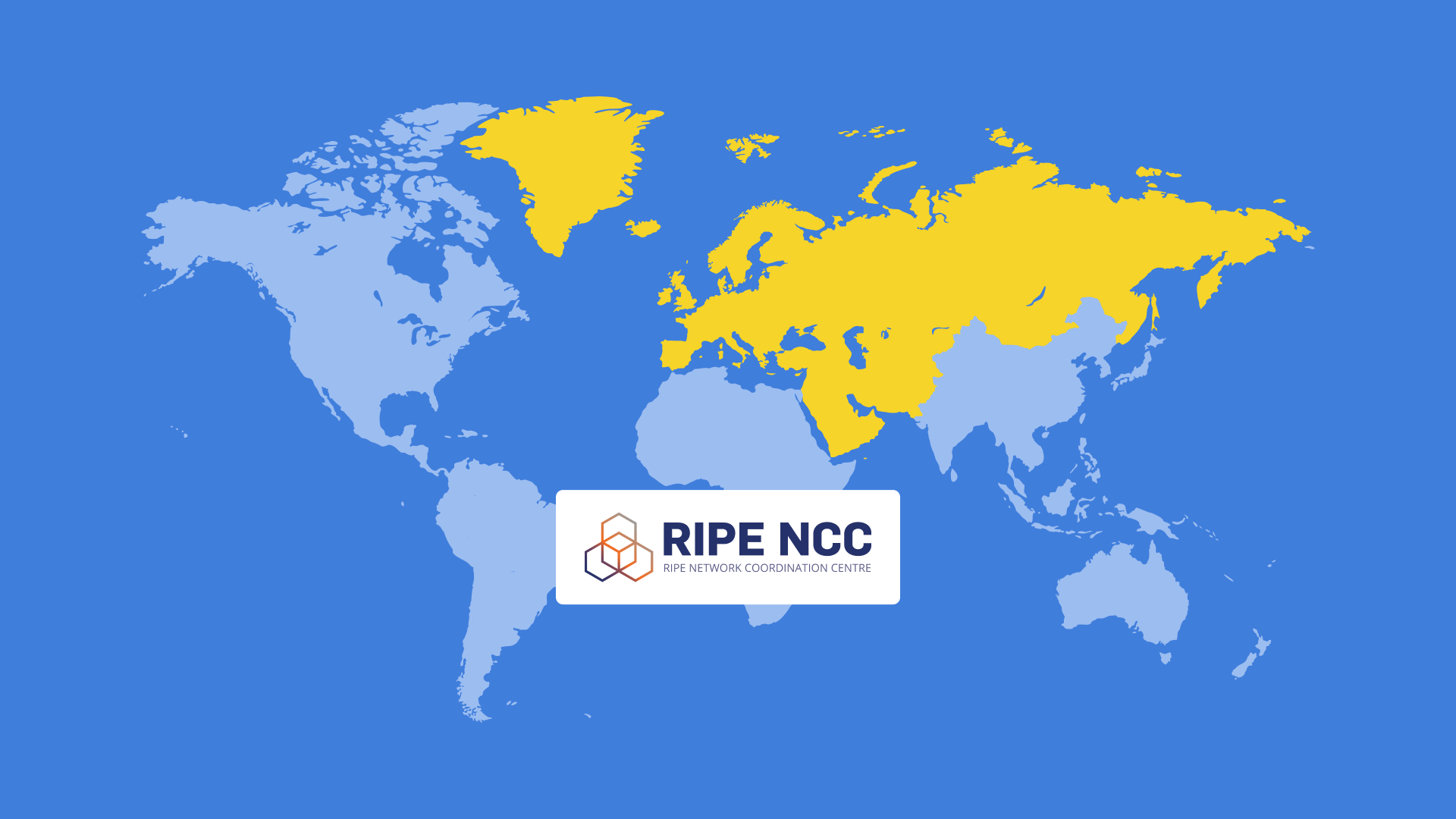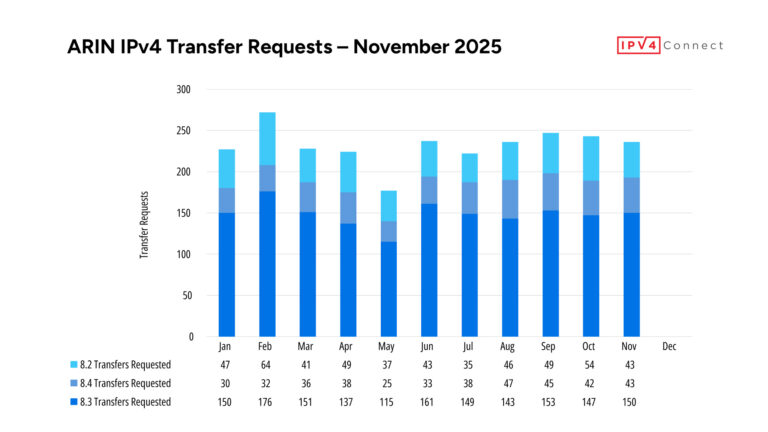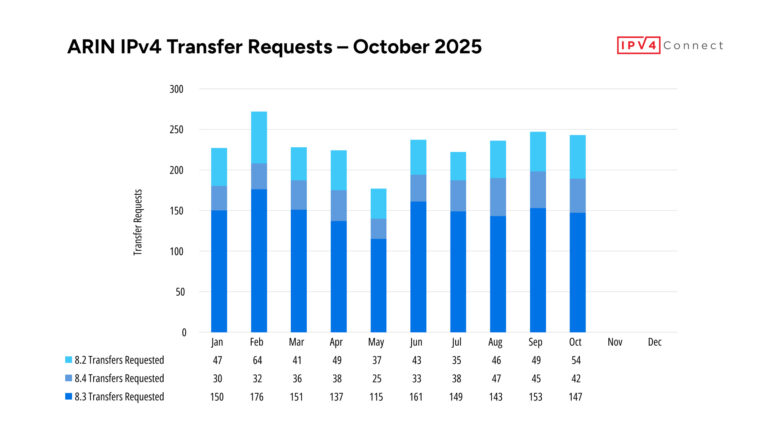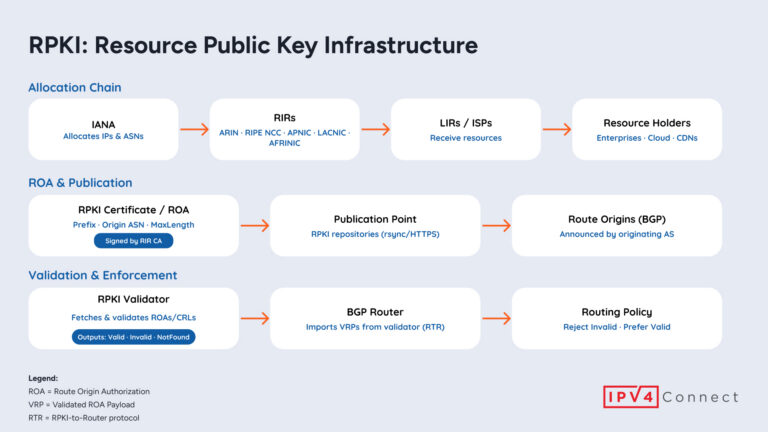Understanding the RIPE Network Coordination Centre
The RIPE Network Coordination Centre (RIPE NCC) is a nonprofit organization that manages internet number resources, such as IP addresses and Autonomous System Numbers (ASNs), for Europe, the Middle East, and parts of Central Asia. It is one of the five Regional Internet Registries (RIRs) worldwide and plays a key role in maintaining the stability and security of the global internet infrastructure.
Stats
- Founded: 1992
- Headquarters: Amsterdam, Netherlands
- Service Region: 76 countries in Europe, the Middle East, and Central Asia
- Members: Over 20,000 organizations, including ISPs, governments, and corporations
In Short
- RIPE NCC oversees the allocation of IP addresses and Autonomous System Numbers (ASNs) across Europe, the Middle East, and parts of Central Asia as one of five Regional Internet Registries (RIRs).
- Following IPv4 depletion, RIPE NCC has implemented transfer policies and promotes IPv6 adoption while managing remaining IPv4 resources.
- Beyond allocation, RIPE NCC offers critical services such as Whois database management, technical coordination, and educational initiatives to support the internet community.
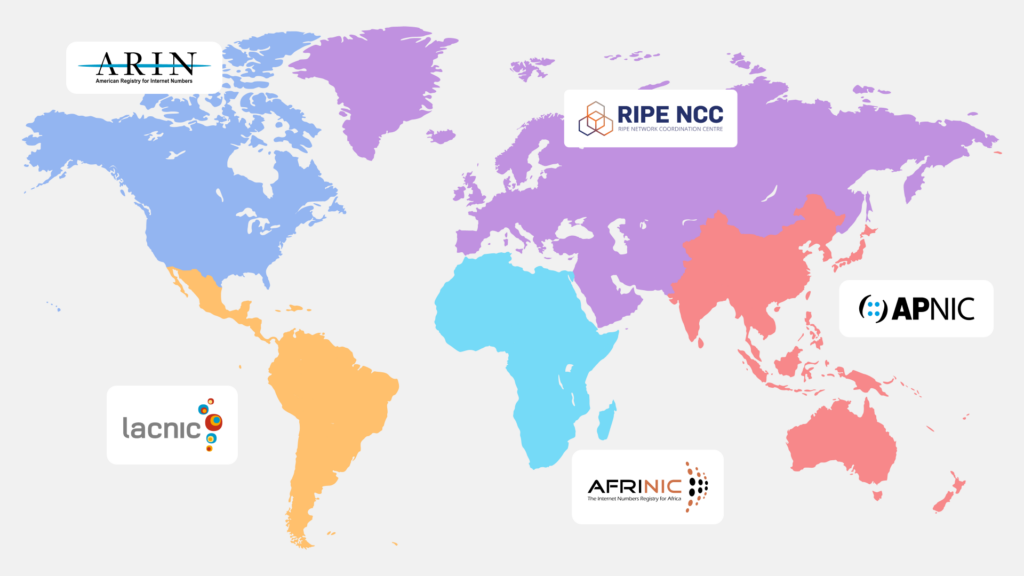
AFRINIC, APNIC, ARIN, LACNIC, and RIPE NCC
Regional Internet Registries
RIPE NCC is one of five Regional Internet Registries (RIRs) responsible for allocating and managing Internet resources. They are broken up into different regions:
- AFRINIC – Africa
- APNIC – Asia-Pacific
- ARIN – North America
- LACNIC – Latin America and Caribbean
- RIPE NCC – Europe, Central Asia, and the Middle East
These registries ensure the efficient and fair distribution of IP addresses and Autonomous System Numbers (ASNs) to maintain global Internet connectivity.
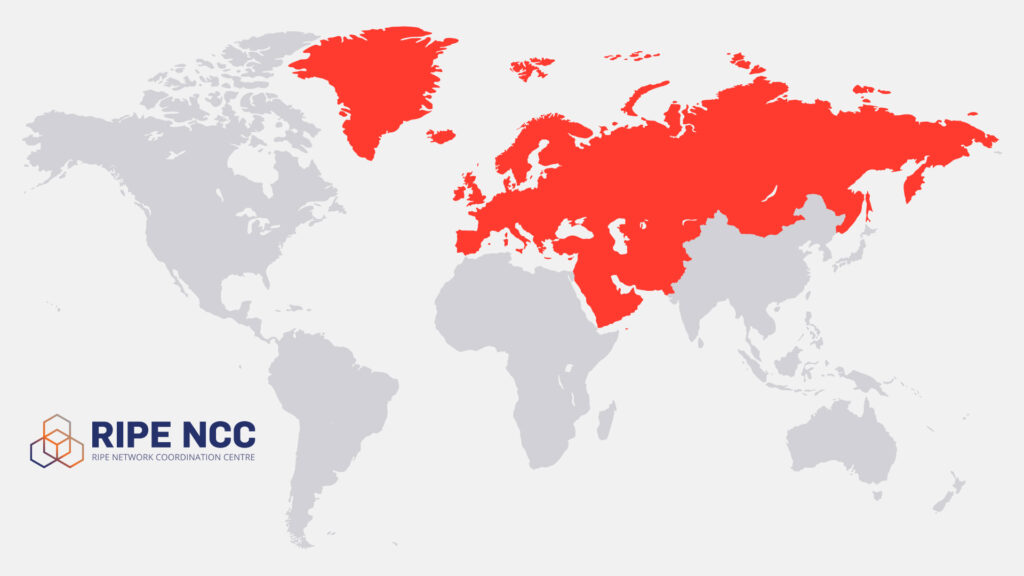
Service Regions
- Europe: Includes all European countries.
- Middle East: Covers countries in the Middle Eastern region.
- Central Asia: Includes parts of Central Asia.
Core Functions and Services of RIPE NCC
Resource Management
RIPE manages the allocation of IPv4 and IPv6 addresses, along with ASNs, across its service region. Since IPv4 exhaustion, it has enforced strict transfer policies and strongly advocates for IPv6 adoption to ensure fair and efficient resource distribution. Registry and Database Services
RIPE NCC maintains vital registry services, including:
- Whois Database: A public directory providing details on IP address assignments and routing information.
- RIPE Database: A comprehensive record of network resource allocations and assignments.
- Internet Routing Registry (IRR): Ensuring transparency and supporting network security.
Technical and Security Services
RIPE NCC provides essential technical support, including:
- Reverse DNS Management for accurate domain resolution.
- Resource Public Key Infrastructure (RPKI) to enhance routing security.
- Collaboration with other RIRs to ensure seamless global resource coordination.
- Policy Development and Community Support
RIPE collaborates with stakeholders to develop policies governing IP allocation and offers educational initiatives for Internet governance.
Focus Areas
RIPE prioritizes internet stability, security, and transparency within its jurisdiction. Key initiatives include:
- Routing Security: Strengthening the integrity of internet routing through RPKI.
- Community Education: Offering technical training and educational programs to enhance understanding of network management and security.
- Internet Governance: Actively participating in policy discussions to shape the future of internet resource management.
- IPv4 & IPv6 Transition: Facilitating the transfer and efficient use of remaining IPv4 addresses while encouraging IPv6 adoption.
IPv4 and IPv6 Management
Since declaring IPv4 exhaustion, RIPE has focused on managing existing resources efficiently. It offers a waiting list for reclaimed IPv4 addresses and supports an active transfer market to meet ongoing demand. Meanwhile, the organization continues to advocate for the adoption of IPv6 to ensure long-term internet growth.
Registration Services
RIPE provides authoritative and comprehensive registration services, including the allocation, assignment, and transfer of essential internet number resources:
- IPv4 addresses
- IPv6 addresses
- Autonomous System Numbers (ASNs)
Regional Internet Registries play role in managing the registration of IP addresses and ASNs within its service region is conducted with a high level of professionalism and dedication to serving the community’s diverse needs. This ensures a structured and efficient oversight of internet number resource distribution, essential for maintaining the robustness and reliability of global internet infrastructure.
History of RIPE NCC
The need for structured IP management emerged in the 1990s, leading to the establishment of RIPE NCC in 1992. Since then, it has played a crucial role in Internet governance, evolving alongside technological advancements:
- 1992 – RIPE NCC is established as the first Regional Internet Registry (RIR) to coordinate IP address distribution in Europe.
- 1997 – Introduced the RIPE Database as a publicly accessible registry of IP address allocations and assignments.
- 2002-2005 – RIPE jurisdiction evolved with the formation of LACNIC (2002) and AFRINIC (2005), refining its service region.
- 2008 – Implemented IPv6 allocation policies to encourage adoption amid IPv4 depletion concerns.
- 2010 – Launched Resource Public Key Infrastructure (RPKI) to improve routing security.
- 2011 – Final /8 policy activated, began strict rationing of remaining IPv4 addresses.
- 2012 – Officially announced exhaustion of its general IPv4 allocation pool, moving to the last /8 policy.
- 2015 – Established inter-RIR IPv4 transfer policies, allowing organizations to transfer addresses between regions.
- 2019 – Declared complete exhaustion of IPv4, with only recovered and reclaimed addresses available via waiting list.
- 2020 – Strengthened IPv6 deployment initiatives and expanded training programs on IPv6 adoption.
- 2022 – Introduced stricter anti-abuse policies and enhanced database accuracy efforts to combat fraudulent IP address registrations.
- 2024 – Increased focus on security with expanded RPKI adoption and improved Internet Routing Registry (IRR) services.
The Future of RIPE NCC
With the depletion of IPv4, RIPE NCC actively promotes IPv6 adoption and manages resource transfers to ensure sustainability. Through its technical services, registry management, and policy leadership, RIPE NCC continues to be an essential pillar of Internet stability and security.
Conclusion
RIPE NCC is a cornerstone of internet infrastructure, serving far beyond an IP address registry. It functions as an essential governing body of the internet. Through its services, transparent policies, and active community engagement, RIPE NCC ensures the stable and secure evolution of the internet. For ISPs, network operators, and organizations reliant on internet resources, understanding RIPE NCC’s role is key. As the internet continues to evolve, RIPE NCC’s resource management and regional development makes it crucial in shaping future connectivity.
